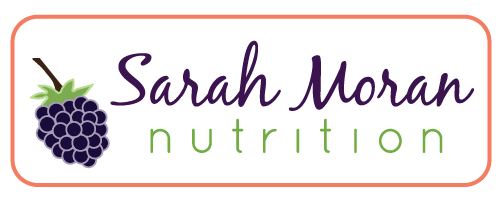Where's the Fruit? A Look at Processed Foods
/ This morning I saw a tease on the Today Show for a segment about misleading food labels (for some basics on label reading click here). You know me. I live for this stuff. I had to head out the door before the segment aired, but I watched it online when I got home tonight. You can watch the clip yourself here. The gist of the segment is that many processed foods including cereals, frozen waffles, yogurt, and bars come in packages that are covered with images of beautiful berries with claims like "made with real fruit." Some consumers may buy these products because they think it's a more nutritious option. Well, in fact, the amount of fruit in most of these products often ranges from none to might as well be none. The truth is, these bits of "fruit" are actually sugar, oil, flavoring, coloring, and maybe a little bit of the actual fruit. Many contain no fruit at all. To me, this was no surprise, but, from watching the segment, I began to realize just how surprising it was for many people. In fact, some of the people interviewed seemed to feel victimized. With all of this in mind, I thought it would be a good idea to discuss the matter.
This morning I saw a tease on the Today Show for a segment about misleading food labels (for some basics on label reading click here). You know me. I live for this stuff. I had to head out the door before the segment aired, but I watched it online when I got home tonight. You can watch the clip yourself here. The gist of the segment is that many processed foods including cereals, frozen waffles, yogurt, and bars come in packages that are covered with images of beautiful berries with claims like "made with real fruit." Some consumers may buy these products because they think it's a more nutritious option. Well, in fact, the amount of fruit in most of these products often ranges from none to might as well be none. The truth is, these bits of "fruit" are actually sugar, oil, flavoring, coloring, and maybe a little bit of the actual fruit. Many contain no fruit at all. To me, this was no surprise, but, from watching the segment, I began to realize just how surprising it was for many people. In fact, some of the people interviewed seemed to feel victimized. With all of this in mind, I thought it would be a good idea to discuss the matter.
1. What do the labels really mean?
It's important to know how to navigate these labels. The most essential piece of advice I have on this is flip the box over and read the nutrition label. Ingredients are key. Don't rely on the company's claims on the front of the package. They're obviously going to present their product in a positive light. Also, think about wording and don't assume. "Made with real fruit" means just what it says. It doesn't mean there is a substantial amount and it doesn't make the product healthy. Would you drink bleach if I told you it was made with real broccoli? I sure hope not.
2. Who's responsibility is it?
Food companies argue that their packaging isn't misleading. If a consumer reads all of the information provided, there should be no question about what a product contains. While you may think their behavior is unethical, it is, in most cases, legal. For some reason, consumers seem to trust a lot of the jargon on food products. This doesn't seem to apply to other industries though. You don't expect Barbie's Dream House to come with her twelve friends complete with wardrobes, even though they are pictured on the box. In the end, it's on the consumer to be savvy. No matter how many regulations we may have, there are always technicalities. And I would argue that this trust in the all-powerful FDA is the core problem. When consumers feel someone else is supposed to be checking up on these things for them, they stop thinking about it themselves. Read a label. Make your own decisions.
3. What can you do?
My answer probably won't surprise you. The key is choosing whole, real foods and skipping the processed junk. Make your own blueberry pancakes. Buy plain yogurt and mix fruit in. I know the convenience of some of these products can be tempting, but it comes down to priorities. Don't get me wrong, I enjoy a good "Here Comes Honey Boo Boo" or "Keeping Up With the Kardashians" marathon as much as the next person (I watch the news too, don't judge). However, this is time that can be put to better use cooking up a large pot of soup or making a double batch of waffles and freezing the leftovers for quick weekday breakfasts. Rather than feeling victimized or hopeless, be empowered by your knowledge and take control of your health!
Did this news report surprise you? Have you ever felt duped by a misleading food label? Sound off in the comments! :)
